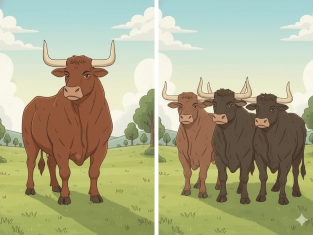Parts of Speech
Table of Contents
Exercises
Explanation
Nouns
Nouns are words that name people, places, things, or ideas. They can be subjects (do the action) or objects (receive the action).
Examples:
-
People: student, doctor
-
Places: museum, city
-
Things: phone, apple
-
Ideas: freedom, happiness
Sentences:
-
The students are in the classroom.
-
Happiness is important.
Pronouns
Pronouns replace nouns to avoid repetition.
Examples:
-
I, you, he, she, it, we, they
-
this, that, these, those
Sentences:
-
She is my sister.
-
Those are my shoes.
Verbs
Verbs show actions, states, or events. Every complete sentence needs at least one verb.
Examples:
-
Actions: run, write, listen
-
States: be, seem, feel
Sentences:
-
They play football.
-
I am tired.
Verbs change form by time (past, present, future) or subject (he works / they work).
Adjectives
Adjectives describe nouns or pronouns. They tell us what something is like.
Examples:
-
tall, noisy, interesting, blue
Sentences:
-
She has long hair.
-
It’s a cold morning.
They can show comparison:
-
big → bigger → biggest
-
happy → happier → happiest
Adverbs
Adverbs describe verbs, adjectives, or other adverbs. Many end in -ly, but not all.
Examples:
-
quickly, very, always, here
Sentences:
-
He runs fast.
-
She speaks clearly.
-
It is very late.
Prepositions
Prepositions show relationships between words, often about time, place, or direction.
Examples:
-
in, on, at, between, under, to
Sentences:
-
The cat is under the chair.
-
We start at 8 o’clock.
Conjunctions
Conjunctions connect words, phrases, or sentences.
Examples:
-
and, but, or, because
Sentences:
-
I want tea and cake.
-
We stayed inside because it rained.
Interjections
Interjections show strong emotion or quick reaction. They often stand alone and use !
Examples:
-
Wow! Oh no! Hey! Oops!
Sentences:
-
Wow! Your drawing is amazing!
-
Oops! I dropped my pen.
Bonus: Articles and Determiners
Some grammars also mention determiners and articles:
-
Articles: a, an, the
-
Determiners: my, your, his, many, this, those
Examples:
-
A dog is in the yard.
-
My phone is on the table.
-
These books are new.
Quick Table
|
Part of Speech |
Function |
Example |
|
Noun |
names a person/thing |
student, city |
|
Pronoun |
replaces a noun |
she, they |
|
Verb |
action/state |
write, is |
|
Adjective |
describes a noun |
big, happy |
|
Adverb |
describes verb/adjective |
quickly, very |
|
Preposition |
shows place/time |
on, at |
|
Conjunction |
joins words/ideas |
and, because |
|
Interjection |
shows feeling |
wow! oh no! |
Learning parts of speech helps you build strong and correct sentences.

